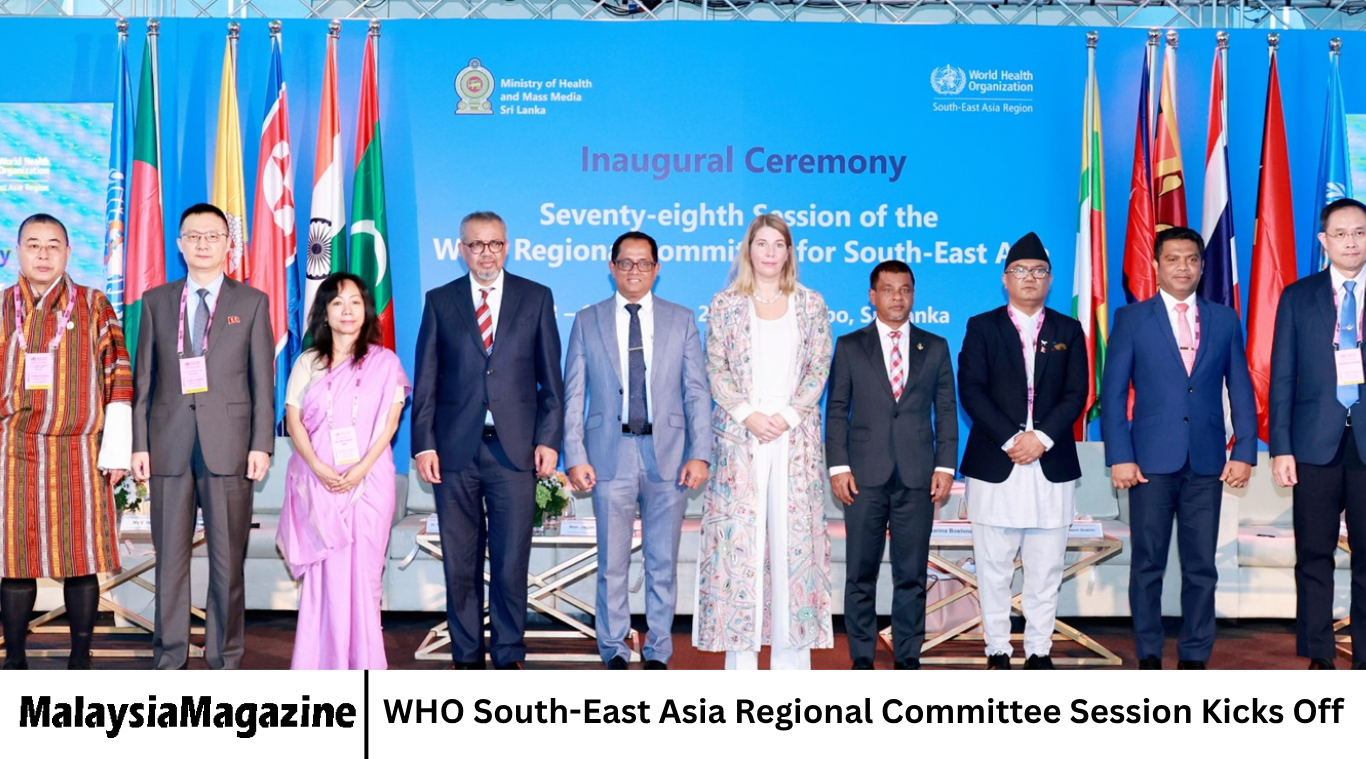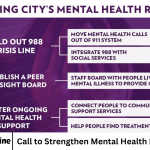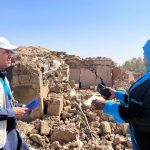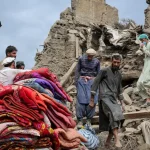The World Health Organization (WHO) has officially begun its South-East Asia Regional Committee Session, gathering health ministers, senior officials, and experts from across the region. This annual meeting provides a platform for countries to discuss regional health challenges, share progress, and develop strategies to improve healthcare delivery and outcomes.
The session comes at a crucial time when countries are working to recover from the long-term impacts of the COVID-19 pandemic while also addressing rising health threats such as non-communicable diseases, antimicrobial resistance, and climate-related health issues. It reflects the region’s commitment to advancing public health collaboration and achieving universal health coverage.
Purpose of the Session
The main goal of the WHO South-East Asia Regional Committee Session is to bring together leaders from member states to review public health progress and set priorities for the future. The session allows countries to collaborate on common issues, share successful models, and align their strategies with WHO’s global health objectives.
This year’s meeting focuses on strengthening healthcare systems, preparing for future health emergencies, and promoting equity in access to medical services. Delegates are expected to discuss strategies to improve immunization coverage, maternal and child health, mental health, and environmental health.
Key Topics on the Agenda
The WHO South-East Asia Region faces a diverse range of public health challenges. Each member country has unique needs, but many share similar goals. The discussions at the session include several major themes.
One key topic is pandemic preparedness. The COVID-19 crisis exposed weaknesses in public health systems worldwide, and WHO is now emphasizing the need for stronger surveillance, faster response mechanisms, and better resource sharing among countries.
Another major focus is on non-communicable diseases such as diabetes, heart disease, and cancer. These conditions are now among the leading causes of death in the region. WHO aims to promote early detection, healthy lifestyles, and preventive healthcare policies.
Environmental health is also on the agenda, with growing concern about pollution, climate change, and water safety. Delegates will explore how to reduce environmental risks and protect vulnerable communities from health impacts linked to changing climate patterns.
Regional Health Priorities
The WHO South-East Asia Region is home to nearly two billion people, making it one of the most populous regions in the world. Health systems across the region vary widely in capacity, infrastructure, and resources.
The main regional priorities include universal health coverage, strengthening primary healthcare, and ensuring equitable access to medical services. WHO emphasizes the importance of reaching rural and underserved populations, where healthcare services are often limited or inconsistent.
Other key priorities include improving nutrition, enhancing maternal and child health, combating infectious diseases such as tuberculosis and malaria, and promoting mental well-being.
Focus on Universal Health Coverage
Universal health coverage (UHC) remains one of the core objectives of WHO’s agenda in the South-East Asia region. UHC ensures that all individuals and communities can access quality health services without facing financial hardship.
The session highlights the need to expand healthcare access, especially in low-income areas, by investing in infrastructure, workforce training, and digital health solutions. WHO officials stress that achieving UHC will require political commitment, efficient resource management, and strong collaboration between governments and private sectors.
Addressing Health Inequality
Health inequality continues to be a major concern in the region. Many people still face barriers due to poverty, gender, geography, or education. The session emphasizes the need to close these gaps by making healthcare more inclusive and affordable.
Countries are encouraged to strengthen community health systems, introduce social protection programs, and ensure that women, children, and marginalized groups have equal access to essential health services.
Strengthening Health Systems Post-Pandemic
The COVID-19 pandemic taught valuable lessons about the importance of resilient healthcare systems. Many countries struggled with shortages of medical supplies, limited hospital capacity, and delayed emergency responses.
This session focuses on rebuilding stronger and more flexible health systems that can better handle future crises. Key recommendations include improving laboratory networks, building vaccine manufacturing capacity, and investing in digital health monitoring systems.
WHO also urges countries to protect healthcare workers by improving working conditions, ensuring adequate training, and addressing burnout.
Combating Infectious Diseases
Infectious diseases remain a significant threat in parts of the South-East Asia region. Tuberculosis, dengue fever, malaria, and emerging viral infections continue to affect millions of people each year.
The session highlights the importance of sustained surveillance, vaccination programs, and cross-border collaboration. WHO is helping countries strengthen laboratory capacity, disease tracking, and community awareness campaigns to prevent future outbreaks.
Tackling Non-Communicable Diseases
As lifestyles change, non-communicable diseases (NCDs) such as heart disease, diabetes, and cancer have become increasingly common. The WHO session emphasizes prevention through healthy diets, physical activity, and early screening.
Member states are encouraged to adopt policies that reduce tobacco use, control alcohol consumption, and limit unhealthy food marketing. WHO also supports improving access to affordable medicines for chronic diseases and promoting public education on healthy living.
Mental Health and Well-being
Mental health has become an emerging priority in the region. The pandemic, social pressures, and economic challenges have led to a rise in anxiety, depression, and other mental health conditions.
The session stresses the importance of integrating mental health into primary care and community programs. Member countries are encouraged to expand mental health facilities, train professionals, and reduce stigma through awareness campaigns.
Health and Climate Change
Climate change is increasingly recognized as a public health emergency. Rising temperatures, extreme weather events, and air pollution are all having serious health impacts.
WHO urges countries to invest in climate-resilient healthcare systems, strengthen early warning mechanisms, and develop policies that reduce emissions and promote clean energy. The organization also calls for regional cooperation to address cross-border environmental health risks.
Technology and Digital Health
Digital transformation is reshaping healthcare across the region. Telemedicine, data analytics, and mobile health platforms have made medical services more accessible, especially in remote areas.
The session explores how countries can expand digital health initiatives while ensuring data privacy and equity. WHO is working to support countries in developing digital health strategies that enhance efficiency and patient outcomes.
Strengthening Vaccine Delivery and Immunization
Immunization remains one of the most cost-effective public health interventions. The session discusses efforts to strengthen vaccine delivery systems, improve coverage rates, and address vaccine hesitancy.
WHO encourages member countries to maintain strong routine immunization programs and ensure that no child is left behind. Expanding vaccine research and manufacturing capacity within the region is also a major focus.
Partnerships and Regional Cooperation
Regional cooperation is central to the WHO’s mission. Health challenges such as pandemics, climate change, and disease outbreaks require collective action.
The session highlights ongoing collaborations between countries to share resources, expertise, and technology. It also stresses the importance of partnerships with international organizations, non-governmental groups, and the private sector to achieve health goals.
Funding and Investment in Health
Achieving sustainable health improvements requires steady financial investment. Many health systems in the region face funding constraints, which limit their ability to expand services and respond to emergencies.
WHO encourages countries to increase their health budgets, explore innovative financing models, and strengthen accountability to ensure that funds are used effectively.
Commitment to the Sustainable Development Goals
The WHO session aligns closely with the United Nations’ Sustainable Development Goals (SDGs), especially Goal 3, which focuses on ensuring healthy lives and promoting well-being for all.
By tackling diseases, improving access to care, and building resilient systems, member countries contribute directly to the achievement of these global goals.
The Way Forward
The WHO South-East Asia Regional Committee Session is not only a meeting of policymakers but a collective commitment to improving health and saving lives. The discussions and agreements made during the session will shape the region’s health priorities for years to come.
Countries are expected to continue working together beyond the session to implement agreed strategies and share best practices. With cooperation, innovation, and sustained investment, the region can make major strides toward a healthier, more resilient future.
Frequently Asked Questions
What is the WHO South-East Asia Regional Committee Session?
It is an annual meeting where health ministers and officials from member countries discuss regional health issues, share progress, and set priorities for the coming year.
Why is this session important?
The session helps countries align their health strategies, strengthen cooperation, and address shared challenges such as pandemics, non-communicable diseases, and health inequities.
What are the key topics discussed this year?
Key topics include pandemic preparedness, non-communicable disease prevention, universal health coverage, mental health, and climate-related health risks.
How does the session benefit individual countries?
Countries gain access to shared knowledge, policy recommendations, and technical support from WHO to improve their national health systems.
How does WHO support countries after the session?
WHO provides technical assistance, training, funding support, and monitoring to help countries implement the strategies discussed during the session.
What is the main goal of the session?
The main goal is to improve health outcomes across the region by building stronger, more equitable, and resilient health systems.
Conclusion
The WHO South-East Asia Regional Committee Session marks another step forward in the region’s collective efforts to strengthen public health. By addressing issues such as pandemic preparedness, non-communicable diseases, mental health, and climate-related challenges, the session reflects a shared vision for better health and well-being for all.
As member countries reaffirm their commitment to collaboration and equity, the hope is that every community across the region will benefit from stronger health systems, improved care, and a safer environment. The discussions and outcomes from this session will serve as a roadmap toward a more sustainable and inclusive future for healthcare in the South-East Asia region.
















